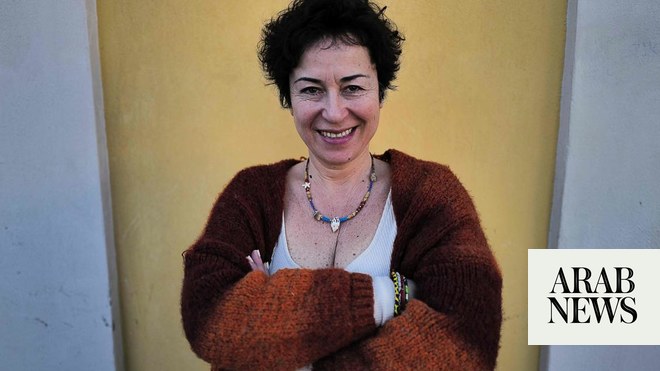
“The detentions are part of a systematic policy of threatening and silencing us,” the Diyarbakir Bar Association said in an official statement
ANKARA: The gap between words and deeds from the Turkish government regarding the Kurdish conflict is widening.
Bulent Arinc, a founding member of Turkey’s ruling Justice and Development Party, recently criticized the continued imprisonment of Selahattin Demirtas, former co-chair of the Peoples’ Democratic Party (HDP), and called for his release.
On Nov. 4, Demirtas will have spent four years in prison after he was arrested on terror support charges — a governmental tactic that the HDP called a “political coup” against the country’s one and only pro-Kurdish party.
Being in detention without trial since 2016, Demirtas is kept in prison in the northwestern border city of Edirne, 1,700 km away from his hometown Diyarbakir where his family resides, making it difficult for his wife and daughters to reach him.
Referring to Demirtas’ recent storybook “Devran,” which he wrote in prison, Arinc, who is also top adviser to President Recep Tayyip Erdogan, said: “Everyone should read ‘Devran.’ Maybe your ideas about Demirtas will not change, but you will understand what Kurds have gone through. Your ideas about Kurds might change. Our prosecutors and judges should operate on the principle of freedom.”
These groundbreaking comments theoretically suited Erdogan’s statement last week saying that Turkey was initiating a new democratization period, hinting at the new judiciary reform packages that are expected for next year.
BACKGROUND
Being in detention without trial since 2016, Selahattin Demirtas is kept in prison in the northwestern border city of Edirne, 1,700 km away from his hometown Diyarbakir where his family resides, making it difficult for his wife and daughters to reach him.
Turkey’s Justice Minister Abdulhamit Gul also recently criticized the lengthy pretrial detention in Turkey.
In an interview last month, Demirtas said that he believes he is behind bars because Erdogan is afraid of him.
The “renaissance” pushed forward by the government looks hopeful, but at the end of the day, deeds matter more than words.
Demirtas’ book, which is available on Amazon and at all bookstores in Turkey, was recently labeled “terrorist propaganda” by a Turkish prosecutor.
A day after the bombshell remarks of Erdogan’s top adviser, Turkish authorities also issued detention warrants on Nov. 20 for 101 Kurdish lawyers and NGO representatives in house raids as part of an investigation. As of Saturday, half of them were released, but their personal phones were seized.
“The detentions are part of a systematic policy of threatening and silencing us,” the Diyarbakir Bar Association said in an official statement.
“The raids that were undertaken today have once again shown that the Diyarbakir Bar Association’s voice wants to be silenced and there is a direct intervention against the work of NGOs.”
Human Rights Watch and Article 19 on Nov. 19 released a joint statement saying that the Turkish government “distorted and perverted the legal process” to keep Demirtas and other HDP politicians behind bars by “misusing detention and criminal proceedings in a campaign of persecution against Demirtas in particular.”
For some experts, the latest detention wave might be related to a political wing inside the government that intends to favor its alliance with the nationalist party MHP, that did not conceal its discomfort at the party’s latest statements about Demirtas.
Mehmet Emin Aktar, former head of the Diyarbakir Bar Association, said there were no accusations while issuing detention warrants to the lawyers.
“During 2019 local elections, lawyers of our bar association were assigned as electoral watchdogs and they performed this professional duty with legal documents that were issued by us. Turkish authorities allegedly found some documents having the names of these lawyers and activists during a raid on the Democratic Society Congress, or DTK, which Turkish authorities claim is linked to the outlawed PKK,” he told Arab News.
DTK was founded as a wide-ranging political forum gathering Kurdish civil society groups in Turkey, and played a role between 2009 and 2015 as a bridge between the government and different Kurdish groups during the peace process that aimed at ending more than three decades of conflict that cost the lives of thousands of people. However, the peace process was shelved in July 2015.
Aktar said that, beyond the rhetorical promises for judicial reform in Turkey, this move was meant to intimidate Kurdish lawyers and activists in the region into silence.
“I have to say that we were expecting such a move for a long time. However, I don’t suppose that Kurds will be intimidated and halt their civil society activism with such tactics,” he said.












